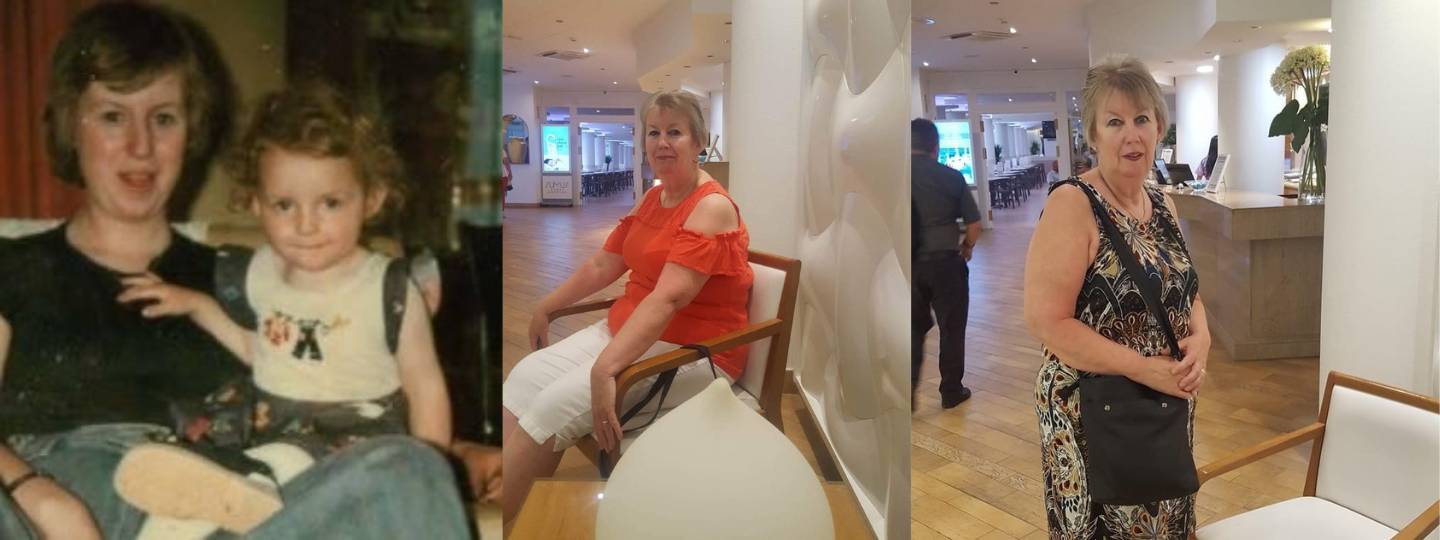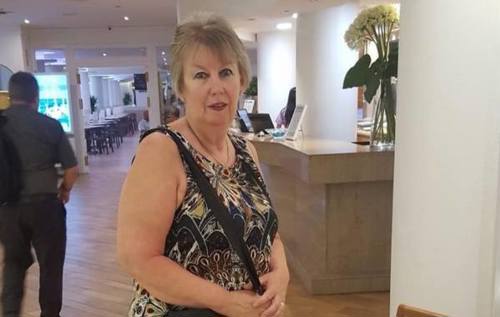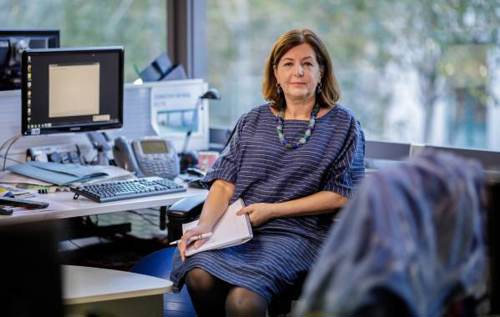Living with polymyalgia rheumatica: Steph’s story
01 June 2023
Polymyalgia rheumatica (PMR) is an autoimmune disease where the immune system, which is the body’s natural self-defence system, attacks the tissues in and around the joints, in particular the shoulders and hips.
People with PMR experience stiffness, pain and high levels of fatigue. They may also find it difficult to carry out everyday tasks such as getting dressed or climbing stairs, and their mental health may be impacted.
Once diagnosed, PMR can be treated with steroids. Symptoms generally improve within a week or two of treatment, with most people finding that the condition goes away completely within one to three years and they no longer need treatment. However, steroids can have side effects including sleep problems, weight gain and changes in mood, which often mean that the years of treatment can be both physically and mentally draining.
66-year-old Steph knows these challenges well. Recently diagnosed with PMR and currently taking steroids, she and her daughter Joanne shared their story with us to raise awareness of the condition.
Steph’s story

Steph was diagnosed with PMR over a year ago. She is newly retired, and the diagnosis has had a huge impact on her life.
“It really hit me in March/April 2021”, says Steph. “For some years I’ve had problems like back ache. We went to see Bohemian Rapsody years ago in the cinema and I was in agony with my back.
“Whether it’s something that’s come on gradually or it’s hit me all at once, I’m not sure. I feel fuzzy in the face. My shoulders feel like they weigh a tonne, my arms and biceps ache all the time and I feel like I’ve got a rod across my back. This past year I’ve been so tired. When I’m sleeping, it feels like it’s all weighing down and trying to crush me.”
Steph is also struggling with her mental health. “I’m crying for nothing”, she says. “My cup isn’t half full anymore and it’s always been half full no matter what.”
“She’s struggling more now than she has before”, agrees Joanne. “Emotionally, this has taken a huge toll on her.”
Getting the diagnosis
Steph was officially diagnosed with PMR just over a year ago. “I was previously diagnosed with breast cancer”, she says. “That pushed me to be strong and get a diagnosis for this, too.”
However, Steph and Joanne feel that they haven’t had the same level of support with Steph’s PMR diagnosis. “The last time I spoke to the doctor, I asked what polymyalgia means for me”, says Steph. “Will I be like this forever where I have to rock to stand up? But with all respect to him, I didn’t get an answer.”
“The awareness isn’t there”, agrees Joanne. “At medical assessment level, the support isn’t there. Everything is so vague. There’s no guidance.
“With the polymyalgia, not knowing what’s going to help is hard. We don’t know what the path is yet. But the breast cancer journey has helped know what we need with the polymyalgia journey. We know what questions to ask.”
Living with PMR
Like many others who have PMR, Steph is currently finding everyday activities much more challenging. “Sometimes it can take me 15 minutes to stand up”, she says. “Then it hurts my arms because I put pressure on them.
“Even putting my pants on is hard – it’s difficult to lift my foot. And getting up the stairs is difficult. I’ll press on the wall coming down. I’ve been having my toenails cut properly. I can’t get down that far – they may as well be on another planet!
“Driving is the only time I feel like me. When I’m driving, I don’t hurt. Getting in and out of the car is difficult, though.”
“We thought retirement would be fun but now we’re spending loads of time in hospital”, says Joanne. “Now is the time she needs to start thinking about herself, to get as many good days as we can get.”
But Steph is still making sure she sticks to her routine. “Even though she’s been feeling more lacklustre than she normally would, she’s still making the effort to go out and have social interactions. I’m proud of her for that.”
“I’ve got some really good friends”, says Steph. “I’m choosing who I spend time with and they’re people I can speak openly with.”
Supporting someone with PMR
Joanne and her sister live nearby to Steph, and they both help out regularly. “My two daughters are my biggest supporters”, says Steph. “I hate driving to Chesterfield but Joanne said she’d take me today without me even asking.”
“Me and my sister see my mum regularly, so we can judge whether it’s a good day or a bad day”, says Joanne. “We pool our skills. We’re all very close.”
“I know being active really helps her, mentally and physically. I help motivate. We go out for walks, although it’s the slowest walk I ever have!
“I’ve become a lot more involved with Versus Arthritis. I’ve worked here for 27 years but I’ve started getting more involved. I did the step challenge last year. I want to help raise awareness.”
Dorothy’s story
In most cases, PMR does get better with the right treatment.

Dorothy was diagnosed with PMR at the age of 57. At the time, she was head of news and current affairs at Channel Four television and a single parent of a child of 12.
Dorothy’s symptoms began with a very sore neck and shoulder ache. “Then one morning I woke up and my arms wouldn’t move at all for 20 minutes”, says Dorothy. “I was given a blood test to check inflammation levels and was put onto steroid tablets. Unfortunately, I wasn’t put on a high enough dose and the aches, pains and weakness got worse.”
Dorothy took steroids for two-and-a-half years. “I put on weight and my face took on a moon shape”, she says. “I became tired much more easily. Sometimes during the day, I would get into my car in the car park and sleep.”
After three-and-a-half years, Dorothy’s condition went away. “I came off the drugs”, says Dorothy. “My weight went down and my face returned to its normal shape.”
Now the President of Murray Edwards College Cambridge, Dorothy advises others with PMR to take it easy. “I would say that I should have taken time off work and that I had to learn to expect less of myself and to tell others I had a debilitating illness, so they should expect less of me.”
Dorothy also recommends those with PMR to join the patient group PMRGCAuk. “I found it really helpful to meet other people with the condition and swap experiences and ideas.”
We’re here whenever you need us
- If you need advice or support, you can call our free helpline on 0800 5200 520
- Chat to our Arthritis Virtual Assistant
- Join our online community
- Stay in touch and follow us on Twitter, Facebook and Instagram.